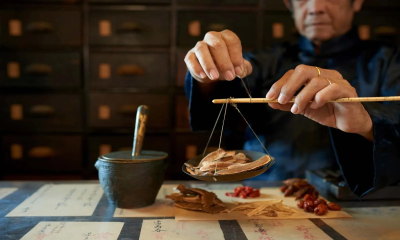As the second Sunday of May arrives, flower shops across Dhaka see a rush of customers, restaurants fill up with family reservations, and children—young and old—scramble to find the perfect way to say "Thank you, Ma." But behind the pink flowers and warm messages lies a history that runs deeper than just a commercial celebration.
Today, Mother’s Day is observed in more than 100 countries, including Bangladesh, as a symbol of love, sacrifice, and the unbreakable bond between a mother and her child. Yet few know that this global tradition didn’t begin with a marketing campaign—it began with grief, activism, and a daughter’s devotion.
From Mourning to a Movement
The modern celebration of Mother’s Day originated in early 20th-century America. A woman named Anna Jarvis led a campaign to honor her late mother, Ann Reeves Jarvis, a peace activist who cared for wounded soldiers during the American Civil War. Anna envisioned a day when people could express sincere appreciation to the women who raised and nurtured them—not through gifts, but through heartfelt gestures.
In 1914, U.S. President Woodrow Wilson officially declared the second Sunday of May as Mother’s Day. Ironically, Anna Jarvis later became disillusioned by how commercial the day had become.
Reverence Rooted in Culture
While Mother’s Day may have Western origins, its spirit strongly resonates in Bangladeshi culture, where mothers hold a deeply respected, even sacred, place in the family. The Bengali phrase “Ma’r doa” (a mother’s blessing) reflects just how central a mother`s love and guidance are in everyday life.
“Mothers in Bangladesh are often the emotional, moral, and sometimes even economic backbone of the household,” says sociologist Nasrin Akter. “Their sacrifices often go unrecognized—but not unnoticed.”
The tradition of showing reverence to mothers also draws from Islamic teachings, where paradise is described as lying “under the feet of mothers,” and from local customs where children traditionally bow to their mother’s feet in respect.
A World of Traditions, One Emotion
While the U.S. may have formalized the date, cultures around the world—and in Bangladesh—have their own ways of honoring mothers. Some offer flowers and sweets, others cook special meals or perform religious prayers for their mother’s health and long life.
Even in rural areas of Bangladesh, where Western holidays may not be widely celebrated, the spirit of Mother’s Day finds expression through small, thoughtful acts—like a daughter returning home early from work, or a son surprising his mother with a new saree.
Colors and Symbols: More Than Just Decoration
If Valentine’s Day is marked by red roses, Mother’s Day is known for carnations. Traditionally, red carnations represent a living mother; white ones are worn in memory of a mother who has passed. In Bangladesh, pink is the dominant color used in cards and gifts, symbolizing affection, warmth, and grace.
Pastel tones—soft peach, sky blue, and lavender—often appear in gift packaging, representing the gentleness and tenderness associated with motherhood.
Heartfelt or Hallmark?
In this era of online shopping and flashy advertisements, some argue that the commercialisation of Mother’s Day dilutes its sentiment. But many others believe these modern tools help people express emotions they may otherwise struggle to share.
“Not everyone can write a poem,” laughs 17-year-old Safa from Dhaka, who gifted her mother a framed family photo this year. “But we all want to make our mothers smile.”
Why It Still Matters
In a world rushing forward, often distracted and digitally overwhelmed, Mother’s Day is a moment to pause, reflect, and appreciate. It reminds us that behind every success story—big or small—stands a mother who gave, guided, and believed.
So this Sunday, whether you do it with flowers, a phone call, or simply by spending time together, don’t forget to say the words that truly matter.
As Anna Jarvis once said:
“A mother is the person who has done more for you than anyone in the world.”
And sometimes, just saying "Thank you, Ma" is more than enough.






-20260108103159.webp)




-20260305071113.webp)




-20260304091720.webp)






-20260303080739.webp)














-20260228064648.jpg)
